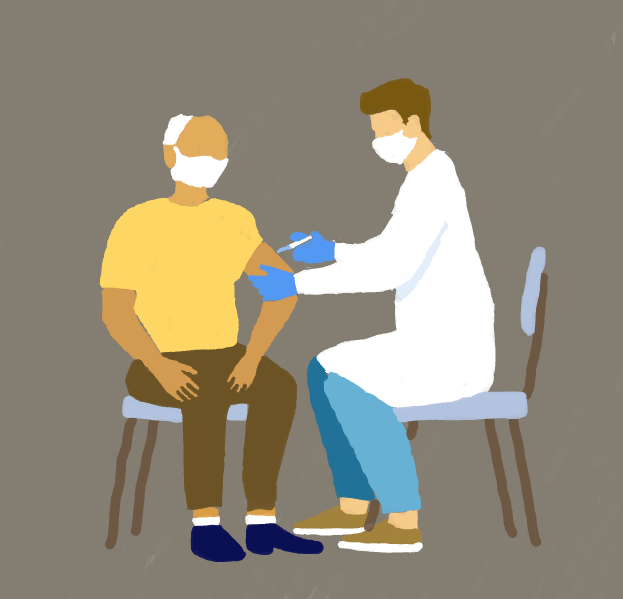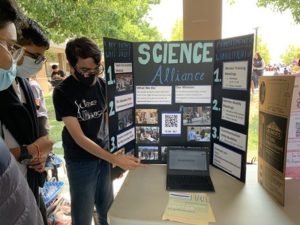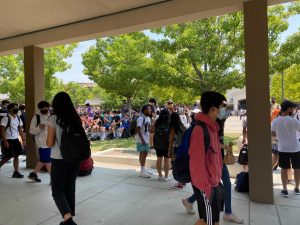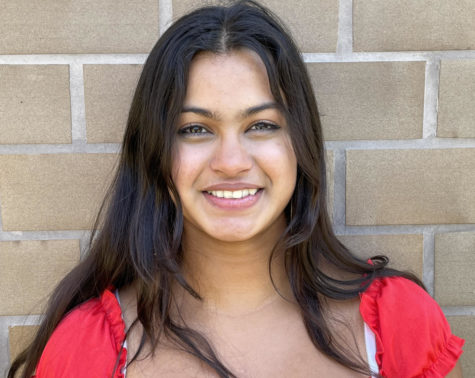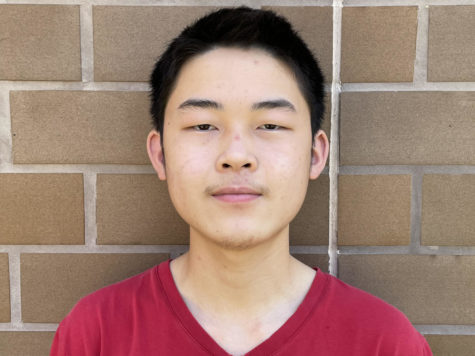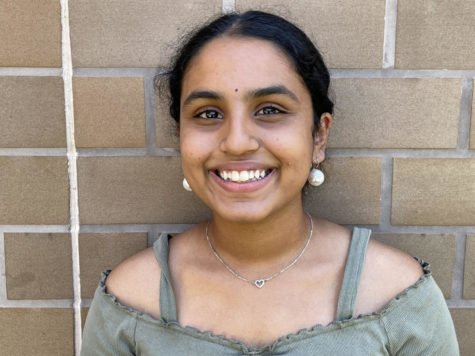- Best of SNO
- Community
- Community in COVID
- COVID-19 Coverage
- General News COVID
- News
- Science & Tech
- WINTER OVERHAUL 2021-2022: Must read news
Getting booster shots is the new normal
The extra layer of protection provided by the booster shot has been a relief for those highest at risk of contracting COVID-19.
October 26, 2021
On Sept. 22, the FDA authorized the Pfizer-BioNTech COVID-19 booster shot for individuals in specific demographic groups, resulting in high demand for the vaccine while experts consider a future with regular booster shots.
According to a statement released by the Centers for Disease Control and Prevention, eligible individuals include those aged 65 years and older, as well as exceptions for individuals aged 18-64 years who are living in long-term care facilities or have underlying medical conditions. Furthermore, those who live or work in settings with a high COVID-19 exposure risk are eligible to receive the booster shot six months after their primary dose of the vaccine.
The booster shot was approved as a means of extended protection against COVID-19, specifically for those with higher risk of exposure and those at a higher risk of contracting the illness. Recent data from the CDC suggest that the effectiveness of the COVID-19 vaccine decreases significantly over time, and that the booster dose can help remedy this by increasing one’s immune response.
“There was some data indicating that there was waning immunity [from the vaccine] … for the people in those higher risk groups, people with underlying medical conditions or older people … it would give them an extra boost of protection,” Contra Costa Health Services Spokesperson Will Harper said.
Despite limited eligibility, FDA approval of the booster shot caused local demand for the Pfizer-BioNTech vaccine to increase sharply. More than 60,000 booster shots have been administered in Contra Costa County as of Oct. 15. A total of 9.72 million doses have been administered in the entire nation as of Oct. 15, with 13.4% of Americans over 65 years of age having received the booster shot.
Fortunately, the larger amount of vaccination sides has caused the distribution of booster shots to be more efficient than the initial distribution of vaccines.
“The situation here in October 2021 is different than it was in March 2021 in the earlier phases of the vaccine rollout where it was very hard to get a vaccine,” Harper said. “They were scarce. Scarcity isn’t an issue now. People have all kinds of options for where they can go [to] get their vaccine.”
DVHS AP Biology teacher Alissa Dreon recently received the booster shot to help better protect her close family and friends, many of whom were at risk of becoming severely sick from COVID-19.
“I have elderly family members, family members with autoimmune disorders, and I have younger children who are not old enough to be vaccinated yet,” she said. “I chose to take [the booster shot] to protect my family and my younger children, since I’m around a lot of contacts [every] day at school.”
After getting the shot, Dreon felt side effects that were comparatively worse than the effects of her first two shots.
“I did not feel well at all starting 10 hours after I got my shot [on Friday]. I had chills, fatigue and dizziness, all the way through Monday,” she said.
James Donnelly, president of the Contra Costa County Advisory Council on Aging, has heard similar stories of side effects from his work as a volunteer driver for seniors and disabled veterans.
“Most people I know, after the booster shot … they felt like they [had] the flu the next day,” Donnelly said. “That was the bad news. The good news was [that] it lasted one day.”
However, Dreon still believes she made the right decision, stating that the side effects might have been caused by external factors.
“I was also under a lot of stress recently, so I don’t know if that has something to do with [the side effects]. I wouldn’t want that to discourage people, and I’m glad I [got the shot],” she said.
Donnelly also sees getting vaccines as a good decision, urging people to get vaccinated. Having lived through outbreaks of polio and other diseases later prevented by vaccines, Donnelly sees vaccination as a simple solution to the pandemic.
“The solution [to the pandemic] is really easy … have 90% of your population vaccinated,” Donnelly said. “[This generation was] never exposed to measles, polio, mumps, chicken pox … because a high enough part of the population got vaccinated, so that if you do have a few cases, the spread of it would be limited. That’s called herd immunity.”
Donnelly agrees, explaining, “People will still get it every year … that’s what we’ve decided is acceptable. If you get down to losing less than 40,000 people a year to the coronavirus, that’s maybe what we live with in the future. Only time will tell.”
Similarly, Harper believes the priority should lie in getting unvaccinated people their first doses rather than in distributing booster shots.
“Boosters aren’t as important as getting unvaccinated people vaccinated because they have no protection,” he said. “The people who are getting boosters already have protection. So, while we’re still following guidance about issuing boosters, I think our top priority remains getting the unvaccinated vaccinated because that’s how we really get over the finish line and get enough people protected so that we have herd immunity.”
Despite this, Harper believes that booster shots are still necessary to maintain immunity against COVID-19. Like other vaccines, receiving booster doses in regular intervals may be required for the vaccine to remain effective.
“The bottom line is that everyone who’s gotten vaccinated at some point is going to need a booster eventually,” Harper said. “Our hope is that it’s like a tetanus shot where you only need one shot for a few years [rather than] a flu shot which you get every year.”
However, the future of booster shots and the pandemic remains uncertain.
“Like with many things with COVID, the answer ultimately is ‘we don’t know,’” Harper said.
More information about getting a booster shot at CCHS can be found here.


